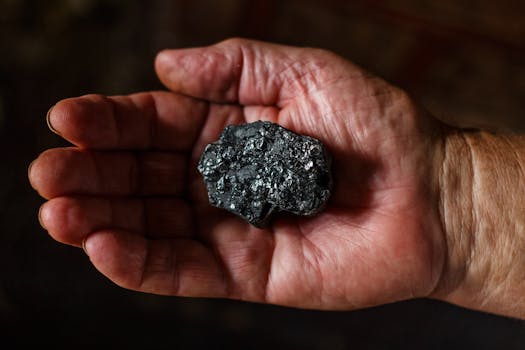
**
Telangana Coal Mines Strike Gold: Rare Earth Element Discovery Sparks Nationwide Search for Critical Minerals
The discovery of significant deposits of rare earth elements (REEs) in coal mines in Telangana, India, has sent shockwaves through the nation's mining and technology sectors. This unexpected find has not only highlighted India's potential to become a key player in the global REE market but has also triggered a nationwide search for these crucial minerals, vital for various high-tech applications. The implications for India's economic growth, technological independence, and strategic security are immense.
The Telangana Discovery: A Game Changer for India's REE Landscape
The initial discovery in Telangana's coalfields was made during routine geological surveys. While the precise quantities and specific REE compositions are yet to be fully ascertained – further exploration and detailed analysis are underway – preliminary reports suggest substantial deposits of several critical REEs, including neodymium, praseodymium, dysprosium, and terbium. These elements are crucial components in the manufacturing of permanent magnets, essential for wind turbines, electric vehicles, smartphones, and various military applications.
The finding has ignited a renewed focus on domestic REE exploration and production within India. For years, India has relied heavily on imports, primarily from China, which controls a dominant share of the global REE market. This dependence has created vulnerabilities in several key sectors, leading to concerns about supply chain security and price volatility.
Implications of the Telangana REE Find:
- Reduced Import Dependency: The Telangana discovery offers a significant opportunity to reduce India's reliance on foreign REE imports, enhancing its strategic autonomy in critical technology sectors.
- Boost to Domestic Manufacturing: Increased domestic REE availability can stimulate the growth of domestic manufacturing in sectors reliant on REE-based products, including renewable energy, electronics, and defense.
- Economic Growth Opportunities: The REE industry has the potential to generate significant employment opportunities and boost economic growth in the regions where these deposits are found.
- Technological Advancement: Access to a consistent and reliable supply of REEs will support India's ambitious plans for technological advancement and digital transformation.
Nationwide Search for Rare Earth Elements Intensifies
Following the exciting news from Telangana, the Indian government has announced a nationwide expansion of its geological surveys to identify potential REE deposits in other regions. This initiative involves leveraging advanced exploration technologies, including hyperspectral imaging and AI-powered data analysis, to accelerate the discovery process. The Geological Survey of India (GSI) is playing a pivotal role in this national effort, collaborating with various state governments and private sector players.
Key Areas Under Scrutiny for REE Exploration:
- Eastern Ghats Belt: Known for its diverse mineral wealth, the Eastern Ghats region is currently being intensely explored for potential REE deposits.
- Deccan Traps: This vast volcanic province, spanning several states, is another promising area for REE exploration, given the geological formations known to host such minerals.
- Coastal Regions: Sedimentary deposits along India's coastline are also being investigated as potential sources of REEs.
The government's commitment is evident in the increased budgetary allocation for geological surveys and mineral exploration. This investment underlines the strategic importance of securing domestic REE supplies and reducing dependence on foreign sources.
Challenges and Opportunities in India's REE Sector
While the recent discovery offers immense potential, challenges remain. Extracting REEs from coal is a complex process, requiring specialized technologies and expertise. Environmental concerns regarding REE mining and processing also need careful consideration.
Addressing the Challenges:
- Technological Advancement: Investing in research and development to refine extraction techniques and minimize environmental impact is crucial.
- Sustainable Mining Practices: Implementing stringent environmental regulations and adopting sustainable mining practices will be essential to protect ecosystems.
- Skill Development: Training and upskilling the workforce to meet the demands of the REE industry is critical.
- International Collaboration: Collaboration with global experts in REE exploration, extraction, and processing can accelerate the development of India's REE sector.
However, the opportunities outweigh the challenges. India's burgeoning renewable energy sector, ambitious electric vehicle targets, and growing electronics industry all require substantial quantities of REEs. Securing a reliable domestic supply chain for these critical minerals is no longer just a desirable goal; it’s a strategic imperative for the nation's future.
The Telangana discovery is not merely a regional event; it's a catalyst for a nationwide transformation, positioning India to become a significant player in the global rare earth element market. This journey will require sustained investment, technological innovation, and a holistic approach to environmental sustainability, but the potential rewards are immense, paving the way for a technologically advanced and economically prosperous India. The ongoing nationwide search for rare earth elements is a testament to India's determination to secure its future in the global high-tech landscape.




















